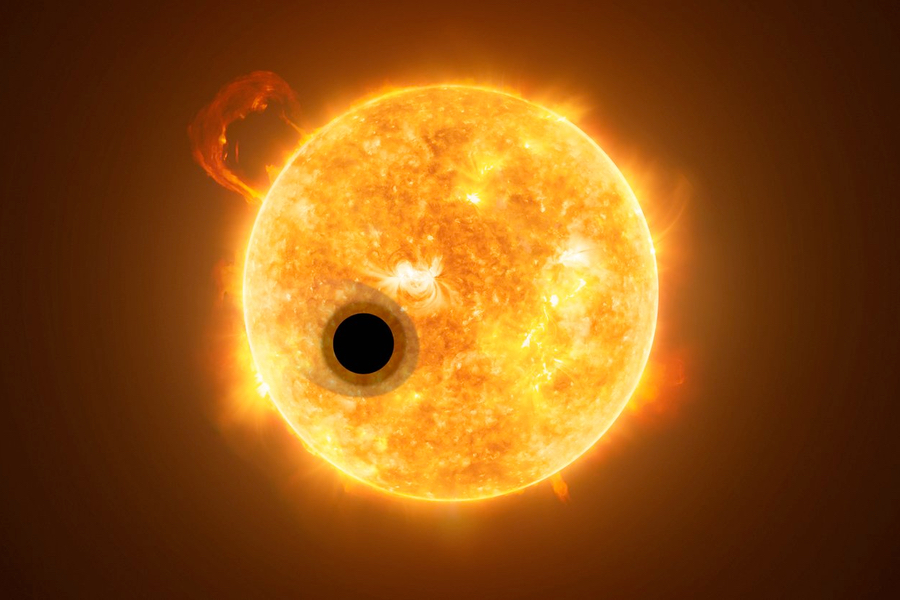- About▼
- Exo 101▼
- News
- Research▼
- Jobs + Internships▼
- Public Outreach▼
- Our Team▼
- Contact Us
- FR▼

 Caroline Piaulet, a PhD student at the Université de Montréal and a member of the Institute for Research on Exoplanet, is the recipient of one of the prestigious Vanier Scholarships, funded in part by the Natural Sciences and Engineering Research Council of Canada (NSERC).
Caroline Piaulet, a PhD student at the Université de Montréal and a member of the Institute for Research on Exoplanet, is the recipient of one of the prestigious Vanier Scholarships, funded in part by the Natural Sciences and Engineering Research Council of Canada (NSERC).
Thanks to this scholarship, Caroline will be able to devote herself fully in the coming years to her research, which aims at better understanding the nature of exoplanets whose sizes are intermediate between that of the Earth and Neptune. She recently published an analysis of WASP-107b, a very low-density exoplanet.
In addition to being a brilliant researcher, Caroline distinguished herself by her ongoing involvement in the Institute’s education and public outreach activities, as well as those aimed at improving equity, diversity, and inclusion in astronomy. Earlier this year, she won an engagement scholarship from the Université de Montréal.
The iREx team is thrilled to have her on the team and extremely proud of her!
Named after Major-General Georges P. Vanier, the first francophone Governor General of Canada, the Vanier Canada Graduate Scholarship (Vanier CGS) program helps Canadian institutions attract highly qualified doctoral students. The program takes into account three equally weighted selection criteria: academic excellence, research potential and leadership skills. It is jointly funded by the Social Sciences and Humanities Research Council of Canada (SSHRC), the Canadian Institutes of Health Research (CIHR) and the Natural Sciences and Engineering Research Council (NSERC).
You must be logged in to post a comment.